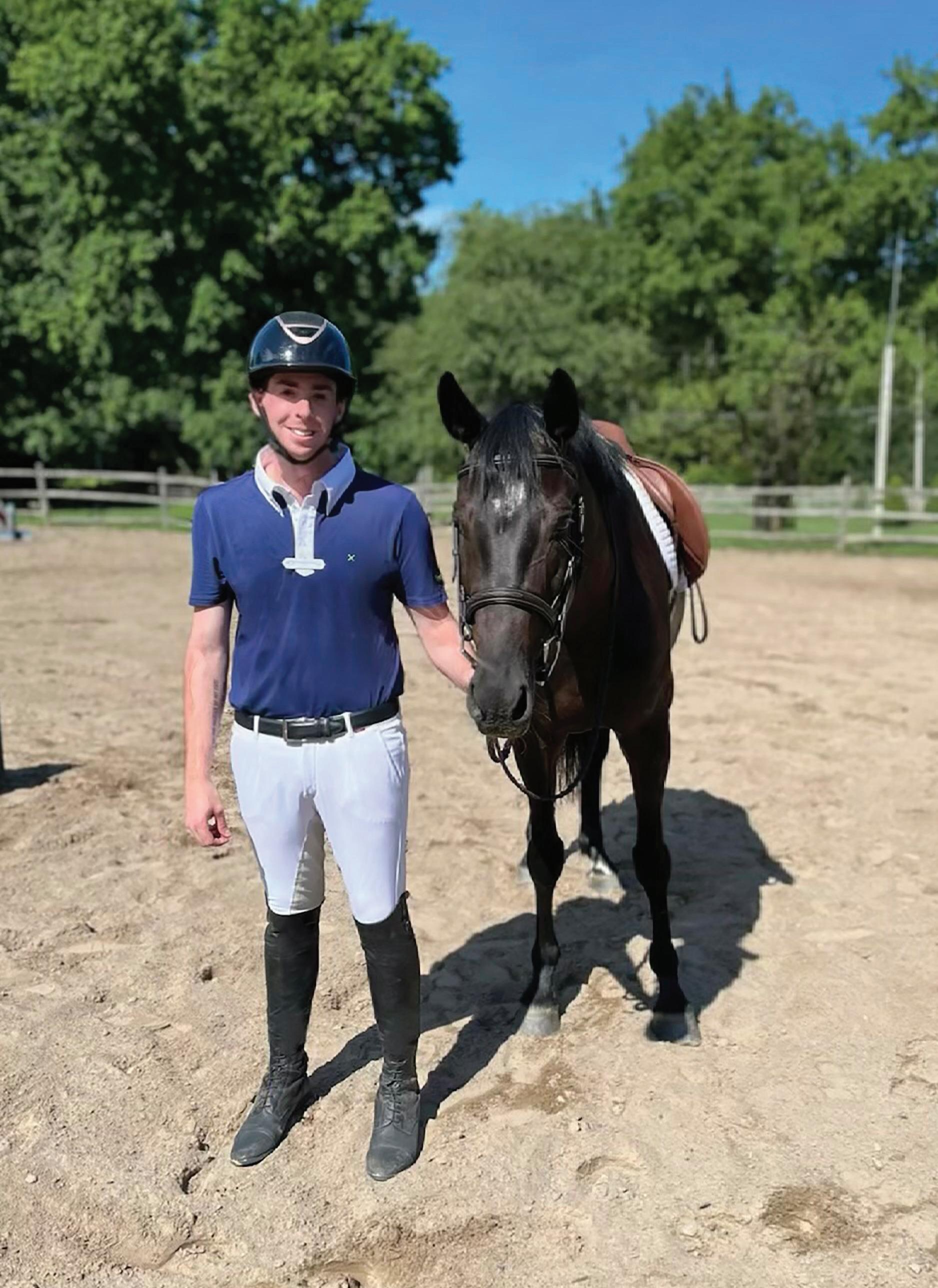
2 minute read
A JOURNEY FORWARD
This fall Alex Roger is transferring to Fordham University’s Lincoln Center campus to complete his Bachelor of Arts degree in social work. Over his past two and a half years at Elizabethtown College in Pennsylvania, he served as president of the school’s Social Work Association. He was a member the Student Senate, which appointed him as a liaison to the Presidential Campus Inclusion Committee and chaired the political action committee for the campus NAACP. He also coordinated college projects with Lt. Governor Fetterman and interned with the National Association of Social Workers.
Alex’s level of campus participation and leadership is notable for any undergraduate but is even more significant considering the challenges he faced as a youth.
Advertisement
Arriving at Keswick School as a struggling 13-year-old in 2012, Alex had been diagnosed at age 10 with Type 1 bipolar disorder. He had intense separation anxiety and extreme sensory issues with sound and texture. “Social clues didn’t come to me,” he explained. The idea of going to Keswick School for four years seemed insurmountable. He would not only be away from his family – including his beloved twin brother – but he knew he would no longer have control of the structure of his daily life.
Over time, though, he realized that he had begun experiencing personal growth. “There’s not necessarily a click moment,” he explained. “It’s a journey, a journey forward with setbacks.”
Alex likens it to his experience in the school’s equine therapy program, in which he excelled. “I was initially afraid of horses, but they put me on BJ, a 30-year-old quarter horse.” First, he learned the basics: Keep your shoulders back, your back straight, and your heels down. Then you post, then canter, then gallop. “At first, each is an individual skill,” he said. “But then you put skills together and you no longer think of the individual skill. You think how to ride the horse most effectively, to solve problems as they arise.”
He said it’s the same for personal growth. He refers often to what he calls the 1-2-3 Rule, which he developed from his self-reflections at Keswick:
• Take in what’s happening
• Analyze what’s working and not working
• Make a plan and execute it
“Eventually, I could do it without being reminded. I realized I was just doing it.” The rule still sticks with him, and he credits this guidance with enabling his academic and social success.
At Fordham, Alex will follow his passion for organizing and advocacy, taking classes on administrative and policy aspects of social work as well as macro social welfare – preparing to work in social work education rather than in a clinical setting.
Even though he is still in college, he is already setting up a nonprofit, called Normalize Now, which will educate people to realize their biases regarding others with mental illness and call out discrimination.
“I couldn’t have done any of this without the skills and growth I experienced at Keswick School,” he says. “This is because of what Keswick gave me.”
He also shared this reminder for Keswick students and parents alike:
“Success looks different for different people. My family culture is to be of service. I love social service and being involved politically.” He cautions students not to compare themselves to others. “Every child should take what he can and find a way to use it and live the way he couldn’t live before he attended Keswick School,” he said. “That’s success.”
Alex Roger, Class of 2016










